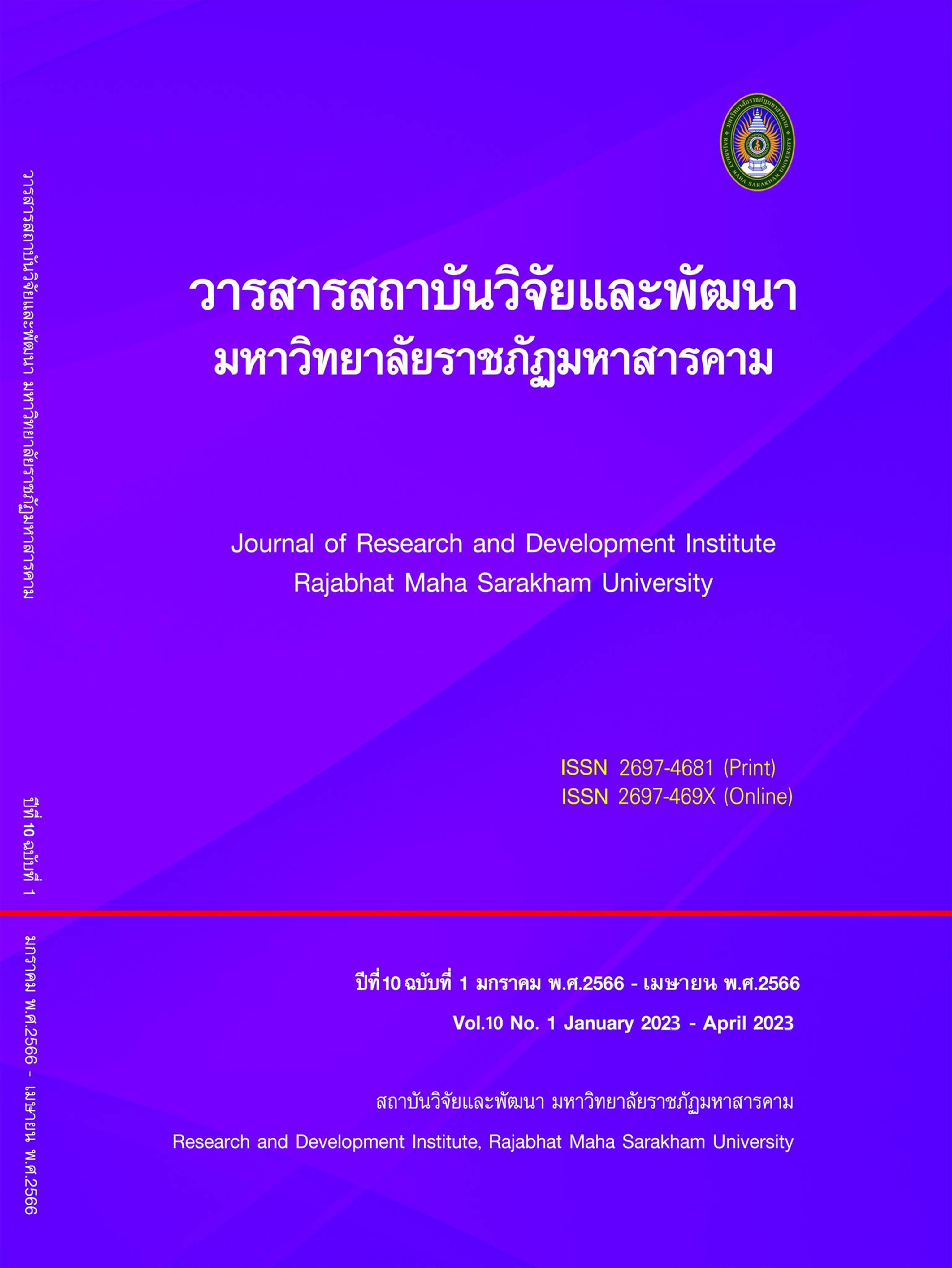Developing analytical thinking ability using inquiry-based learning for high vocationalcertificate 1
Keywords:
Analytical Thinking Ability, Inquiry – Based LearningAbstract
The purposes of this research were 1) to develop effective inquiry-based learning according to Criteria 70/70 2) to compare analytical thinking ability using inquiry-based learning according to Criteria 70 and 3). To compare the achievement of developing analytical thinking ability using inquiry-based learning according to criteria 70, with the target group of this research being all High Vocational Certificate 1 students at Yasothon College of Agriculture and Technology. 12 people. The tools used in the research were the tools that the researcher created, including a learning management plan. about broiler vaccination Broiler production course, number 6, learning management plan Analytical Thinking Ability Test Subject 20 achievement test Multiple choice number 15 The statistics used in the research were mean, percentage, standard deviation.
The results of research showed that 1) The efficiency value of the learning management of Inquiry-Based Learning for analytical thinking abilities for High Vocational Certificate 1 with an average score of 80.42/85, which is higher than the set criteria of 70/70. 2) Analytical Thinking Ability Scores Using Exploration-Based Learning Management for High Vocational Certificate 1 with an average score of 80.42 which is 70 percent higher than the specified threshold. 3) An achievement score in the development of analytical thinking ability by using the quest for knowledge management. for High Vocational Certificate 1 with an average score of 85 percent, which is 70 percent higher than the specified threshold
References
Buddhaduang, J. (2008). The development of basic thinking skills and academic achievement. For grade 2 students using questioning techniques. Khon Kaen : Khon Kaen University.
Chalermsri, C. (2012). Studying the development of an integrated learning management activity package within the science learning subject group. Grade 2, Srinakharinwirot University Demonstration School, Prasarnmit (Elementary Department). Bangkok: Srinakharinwirot University Demonstration School.
Khuha, P. et al. (2019). The effects of inquiry learning cycle (5es) with concept-based instruction in photosynthesis on biological concepts and science communication abilities of the eleventh grade students). Journal of education naresuan university, 21(4), 198–211.
Layai, K. et al. (2009). The Development of Science Project Learning Activity Pack for Developing Analytical Thinking. For students in grade 2. Phitsanulok : Naresuan University.
Limmatwaphirat, C. (2005). Vaccines: Benefits, Safety and Development. Nakhon Pathom: Faculty of Pharmacy. Silpakorn University.
Suebsing, S. (2018). The development of analytical thinking abilities of general science students. Roi Et : Roi Et Rajabhat University.
Thongpan, S. (2009). The study of the effect of using a search-based teaching method together with questioning techniques. on the ability to think critically and academic achievement in science. of Prathomsuksa 5 students. Songkhla : Thaksin University.
Downloads
Published
How to Cite
Issue
Section
License
Copyright (c) 2023 ศุภชล ขันแข็ง

This work is licensed under a Creative Commons Attribution-NonCommercial-NoDerivatives 4.0 International License.
Articles that are published are copyrighted by the authors of the articles







